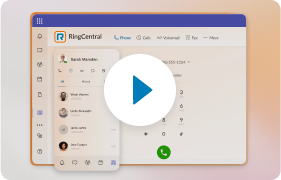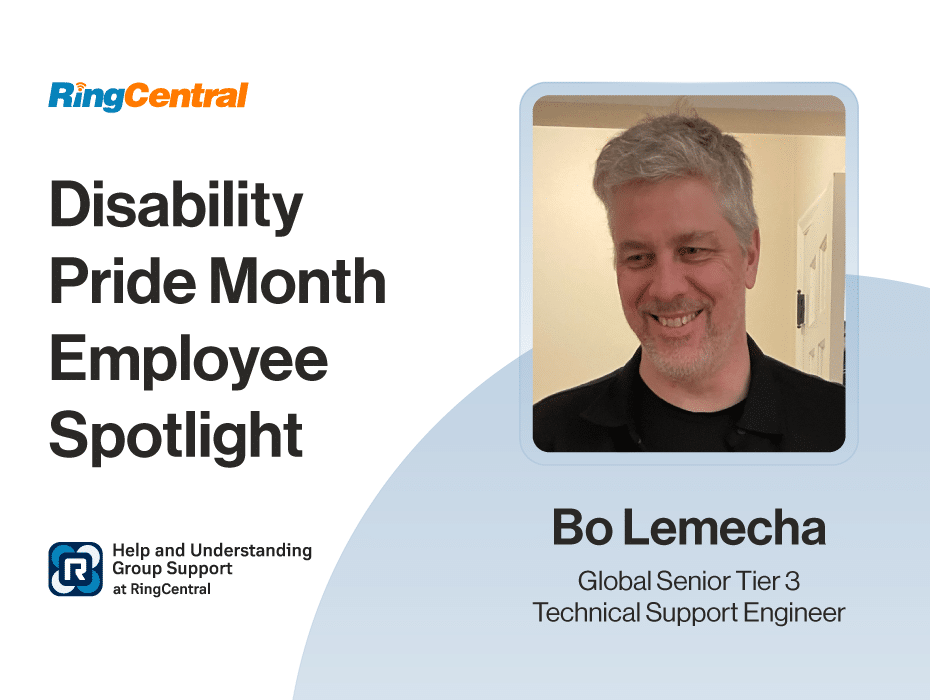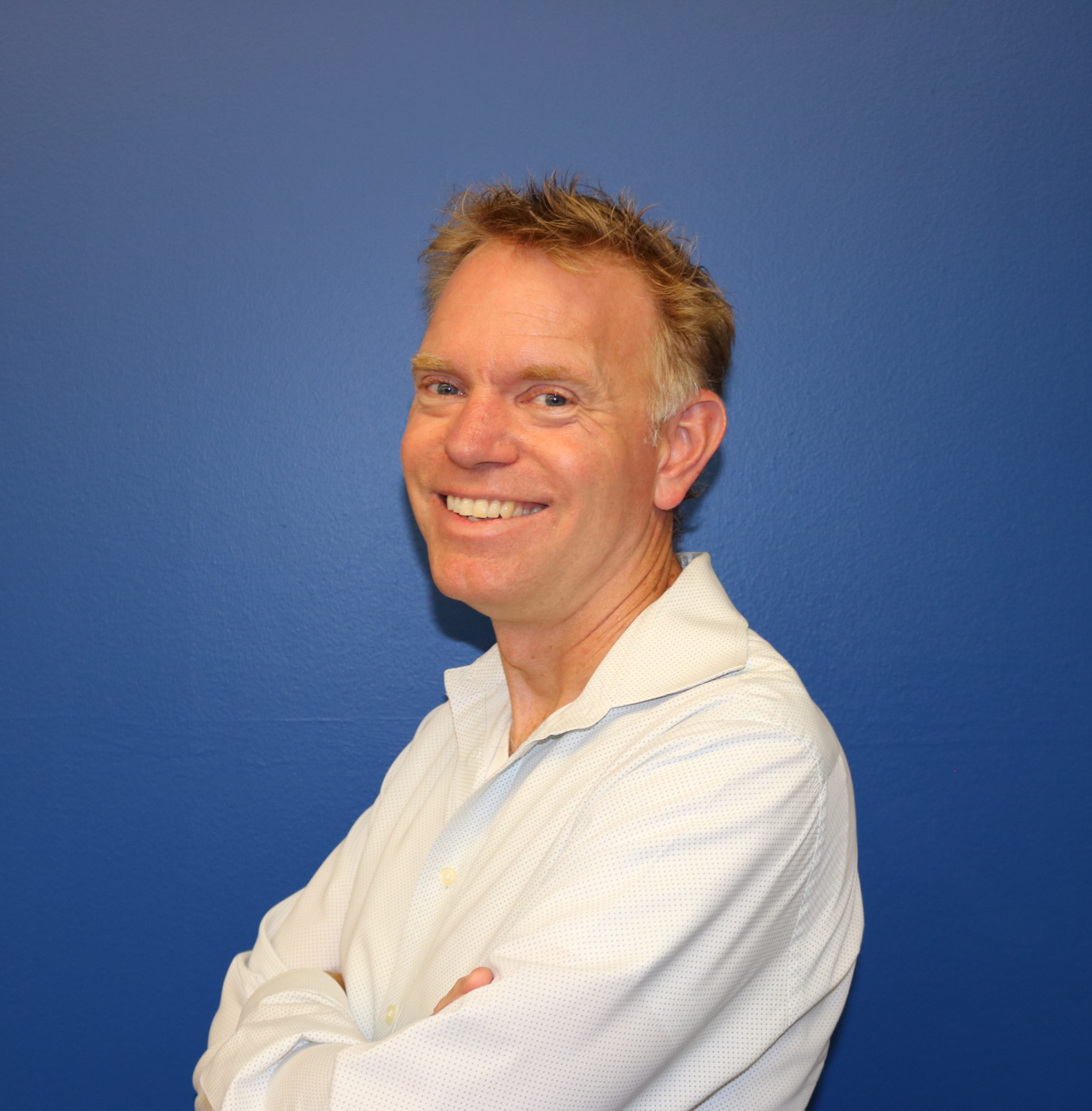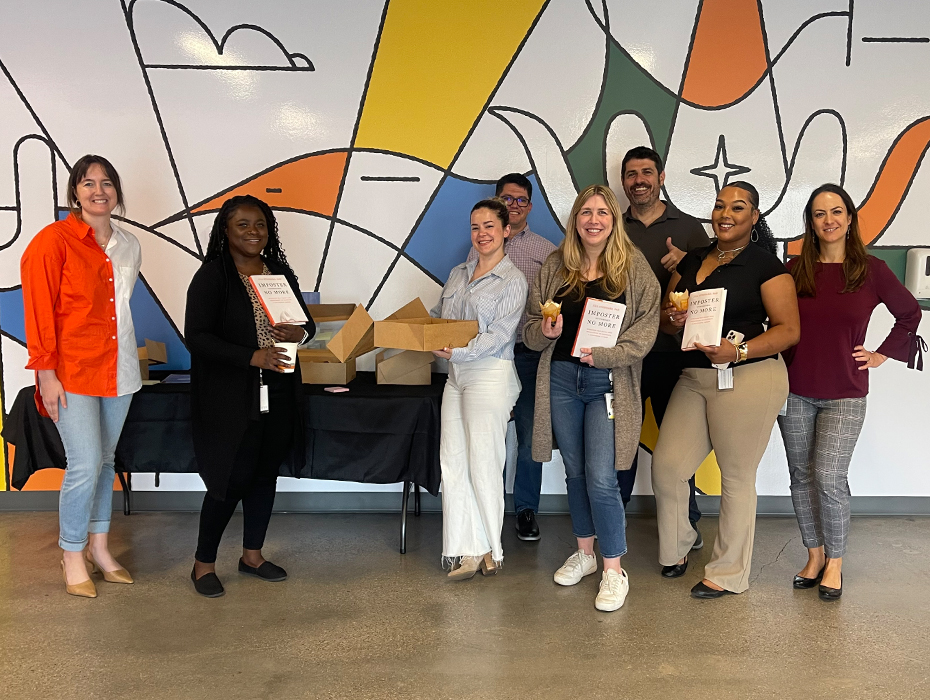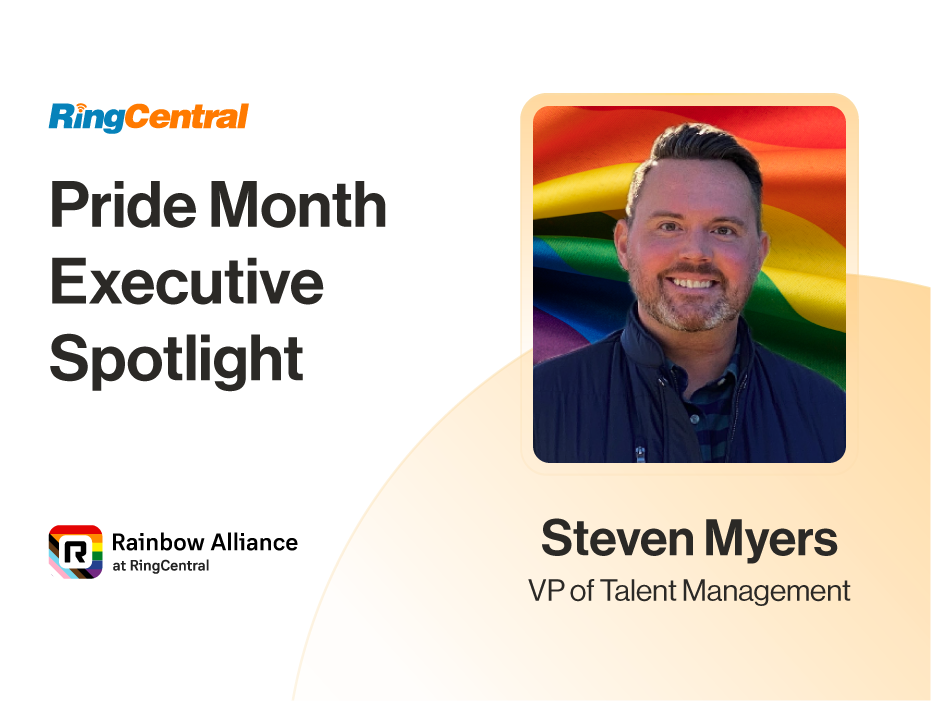Highlights:
- July is Disability Pride Month
- In honor of Disability Pride Month, we sat down with RingCentral’s Global Senior Tier 3 Support Engineer and Accessibility Council member Bo Lemecha to hear about the challenges of losing his sight from Stargardt’s, a rare condition, and how he has adapted to his disability to achieve great things.
Disability Pride Month is a time to celebrate the unique experiences, strengths, and achievements of people with disabilities while raising a greater understanding of some of their challenges. We recently spoke with Global Senior Tier 3 Support Engineer and RingCentral Accessibility Council member Bo Lemecha to hear about the challenges of losing his sight during childhood from Stargardt’s, and how he has gone on to earn a graduate degree and lead a global engineering team.
Current leadership role.
Bo greeted us from his home office just outside of Detroit, Michigan, where he leads a global team of RingCentral support engineers. He started in a similar position with the company 11 years ago in February 2013, taking on a more senior leadership role about four years ago. “My team has been supportive of me. The manager that hired me was very supportive, showing a lot of faith in my abilities and giving me a chance that a lot of other people wouldn’t have.” His team primarily supports customers in the $150k or higher tier, many of whom Bo is on a first-name basis with.
A childhood with sight.
To give a little history about his vision, Bo recalled some vivid memories: “I remember sitting in the front window of my childhood home watching raindrops in the puddles outside. Up to the point of about 8 years old, I could see just fine.” When he started to lose his sight, no one knew quite what was going on. It was the late 70s and medical technology and knowledge were not what they are today. By the time he finally received a diagnosis of macular degeneration caused by Stargardt’s—a rare genetic condition affecting less than 400 people a year in the US—Bo was already in his teens.
Adapting to a new perspective.
Bo’s parents chose to send him to a typical middle school and high school rather than a school for the blind. From there he went on to attend mainstream college and received an MS in Interdisciplinary Telecommunications from the University of Colorado, Boulder. He adapted by listening to books on tape, and tried OCR tape scanners but the early technology was slow and inaccurate. Adaptation was and still is, a big key to his success.
Being blind gives me a perspective of how things can be done differently, and not just in a way that would benefit me. I think about what innovations would help me and also help other people. When I try to adapt something, I don’t adapt it to suit just my needs, I try to make sure it works for everyone.
It’s this inclusive philosophy that Bo brings to work every day to assess and improve RingCentral’s technology and increase accessibility for our employees and customers.
Unique problem-solving.
Bo’s background in acoustic engineering paired with his experiences as a blind person create a unique strength for addressing sound issues. There was one time during a meeting when a colleague was having sound issues and reported a lot of echo, but there didn’t seem to be a technical problem. Bo’s unique perspective led him to look at environmental issues. “It’s amazing how far you can go if you just hang a tapestry on the wall in your office. Acoustic reflections of sound are something I’ve brought up more than a couple of times.”
Assistive technologies.
While environmental issues can be contributing factors, there are also times when assistive technology is crucial for accessibility. Bo has found RingCentral’s app to be particularly helpful when used in combination with hotkeys.
I use keyboard combinations (hotkeys) when I’m in the RingCentral app, like joining this meeting rather than going and finding the video tab. I can navigate around to find buttons. I can tell it to show me the buttons. I can find the join button. Technology like that is meant to make things quicker for everybody, but for me, it’s almost essential.
The built-in accessibility features in the Mac operating system (particularly the voiceover screen reader and the zoom screen magnifier application) have also been helpful. Because of his technological and experiential insights, Bo is frequently consulted by account executives to speak with blind and visually impaired users about the accessibility of RingCentral’s products.
Accessibility council.
An increasing awareness of the need for workplace accessibility led to the recent creation of the RingCentral Accessibility Council. Bo is happy to be a part of this new initiative and he’s already bringing fresh ideas to the table. Additional enhancements for videos—like the inclusion of an audio descriptive talk track—would benefit not just blind and visually impaired users, but anyone who steps away from their screen and wants to stay informed. The goal is to go above and beyond compliance to create products that are useful to potential customers. RingCentral’s Accessibility Council is now working closely with the Development team to identify and implement innovations at the development stage (rather than retrofitting existing products).
Additional workplace resources.
Supporting employees with disabilities is a top priority and is woven into everything we do. At RingCentral, the Help and Understanding Group Support (HUGS) Employee Resource Group serves as a platform for our disabled and neurodivergent employees, as well as their caregivers and allies, to come together, share experiences, and support one another. Bo joined HUGS at the invitation of a colleague and has found a new forum to contribute ideas and share his unique experience and expertise. Bo’s advice for other people with disabilities who want to pursue a career in technology is to be persistent, not be afraid to ask questions, and to leverage available resources. Bo emphasizes that with a disability, it’s a lifelong learning process and that learning continues even today.
Updated Mar 13, 2025
